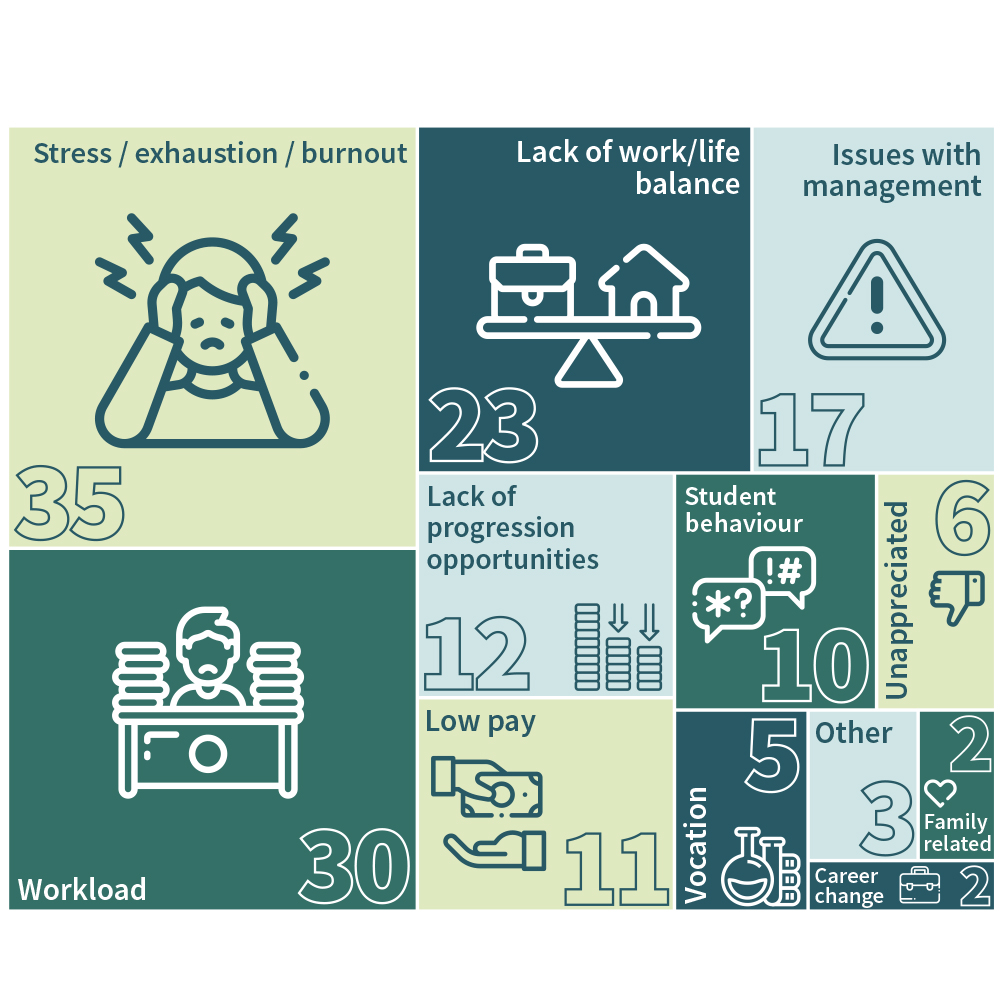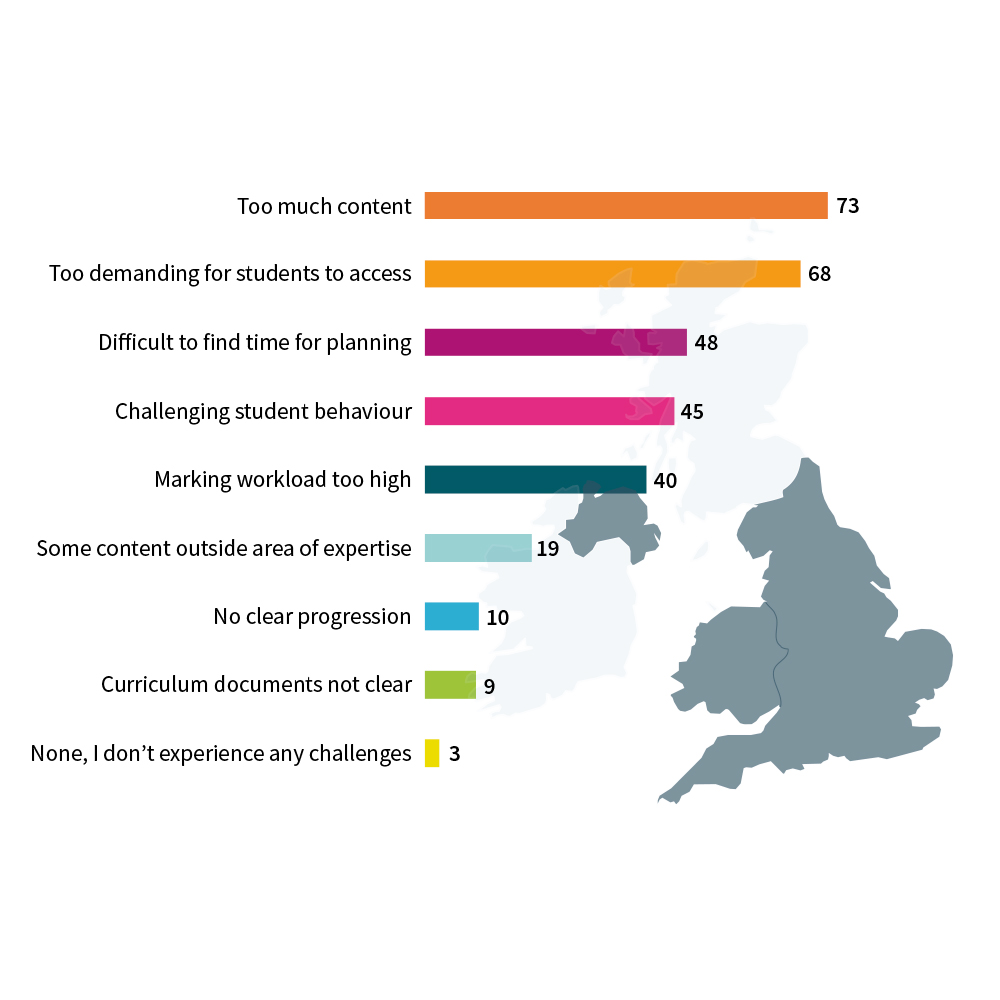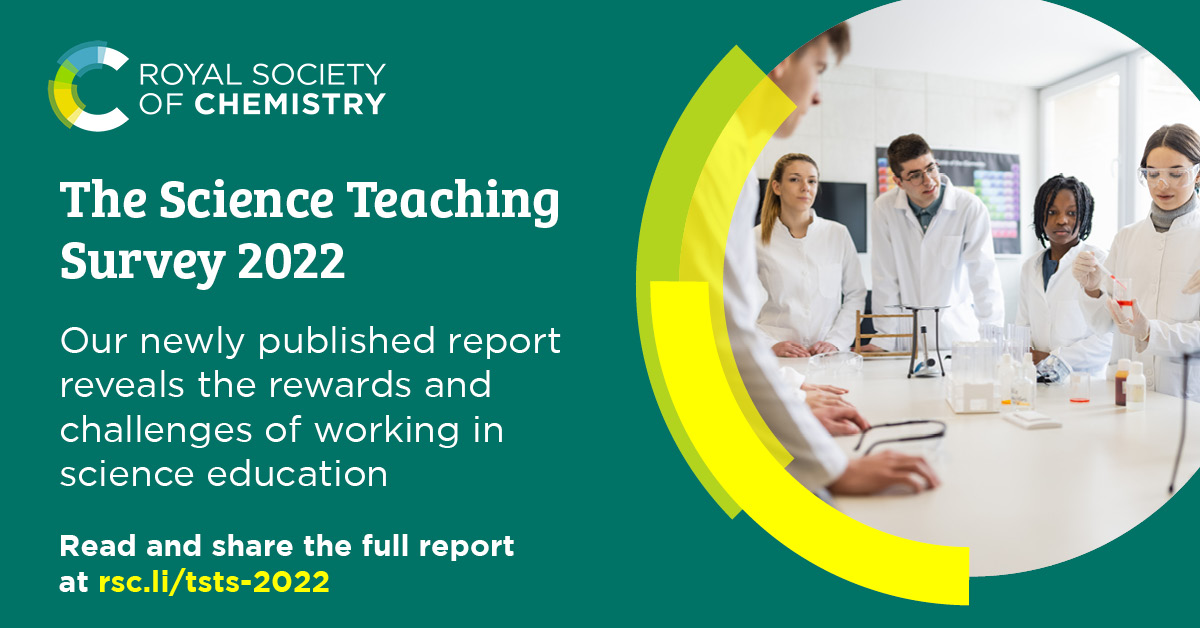Concerns over quality of science education as more than half of schools report understaffing of subject specialists

Picture: © Getty images
A major survey of more than 3,700 UK science teachers and technicians by the Royal Society of Chemistry has revealed a widespread shortage of subject specialists meaning many lessons are taught by 'out of field' teachers.
A significant majority of state secondary schools across the UK (64%) report being understaffed in at least one of the key sciences, while a lack of science technicians is reported by more than 40% of schools in England, Scotland and Wales, hindering students’ access to regular practical work.
Nearly one in five science teachers (18%) at state secondary schools plan to leave the profession in the next five years for reasons other than retirement, with high workload, stress and exhaustion highlighted as the main issues.
Compounding this skills shortage, less than half of respondents said they had adequate access to subject specific professional development.
Professor Gill Reid, President of the Royal Society of Chemistry, said: “A high standard of science education is essential to develop the skilled workforce needed to help create innovations that will drive growth in the UK and tackle societal issues such as climate change and health crises. But understaffing in school science departments puts those ambitions at risk. Therefore, we really must address this effectively and with urgency.
“Most of all, a good quality of education must be delivered equitably if we are to meet the government’s ‘levelling up’ aspirations – yet this report suggests significant inequalities in the provision of science education.
“Teachers are telling us that concerns are not just about pay, but a wide range of issues including understaffing, access to professional development and burnout.
“While the Royal Society of Chemistry and our colleagues in Physics and Biology will continue to champion science teaching and technician careers, the governments of the UK must do more to support our schools and ensure our pupils get the unbroken chain of subject experts they deserve throughout their science education.”

Teachers' reasons for considering leaving the profession other than age or retirement Picture: Royal Society of Chemistry
The RSC’s report, The Science Teaching Survey 2022, collated views on the rewards and challenges of delivering a high-quality science education from thousands of secondary teachers, heads of department and technicians.
In England, 32% of schools had insufficient numbers of Chemistry teachers, with 50% saying they are understaffed in Physics.
Science technicians provide vital support to the teaching of practicals, delivering greater context and engagement for learners. Understaffing was reported widely, emphasizing inequalities and putting further pressure on science teachers. For example, schools rated as ‘outstanding’ by Ofsted had an average of 3.0 science technicians, while those requiring improvement had an average of 1.9.
Meanwhile, teachers at Key Stage 4 at state schools in England, Wales and Northern Ireland say the science curriculum has too much content (73%) and is too demanding for students to access (68%). Nearly half (48%) say finding time to plan lessons is difficult, and 40% say the workload from marking is too high.

Challenges faced in teaching the science curriculum at KS4 Picture: Royal Society of Chemistry
Gill Reid added: “We must work harder to ensure that our curriculum is relevant for pupils, not just in terms of their interests but also to reflect the needs of further and higher education, and the scientific workforce. Education isn’t just about growing minds; it should be about sparking interest and enthusiasm that raises aspirations and leads to a rich and fulfilling career. Many teachers now find the science curriculum is unwieldy and that will have a direct, detrimental effect in the classroom.
“Our research has shown that educators and young people believe climate change and sustainability should be embedded in the chemistry curriculum and we’d urge policymakers to give our proposals urgent consideration.”
To find out more about the RSC’s work to support science education and the survey findings, please visit our Teaching Survey web pages.
